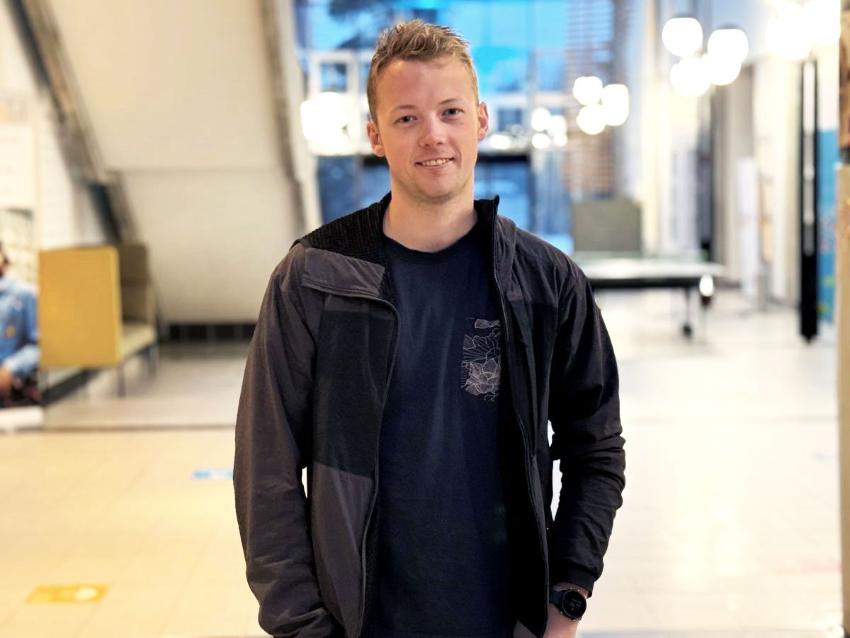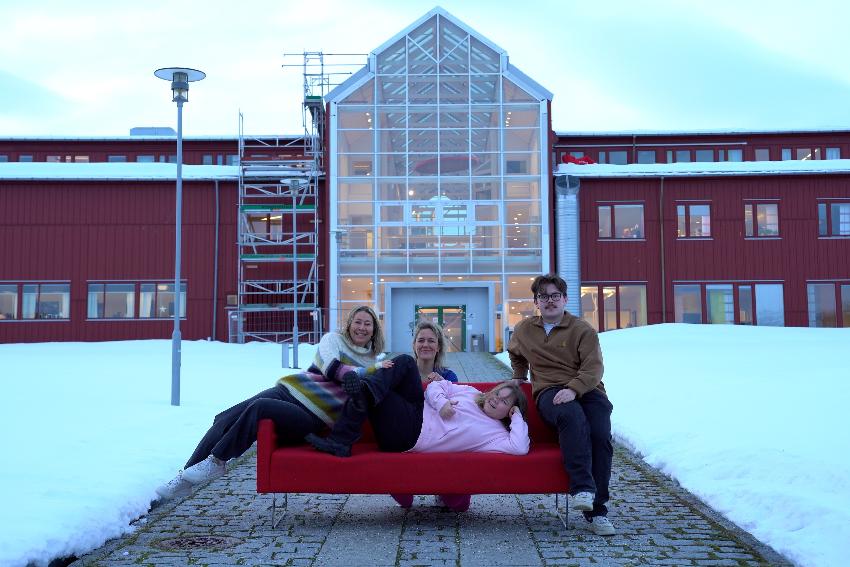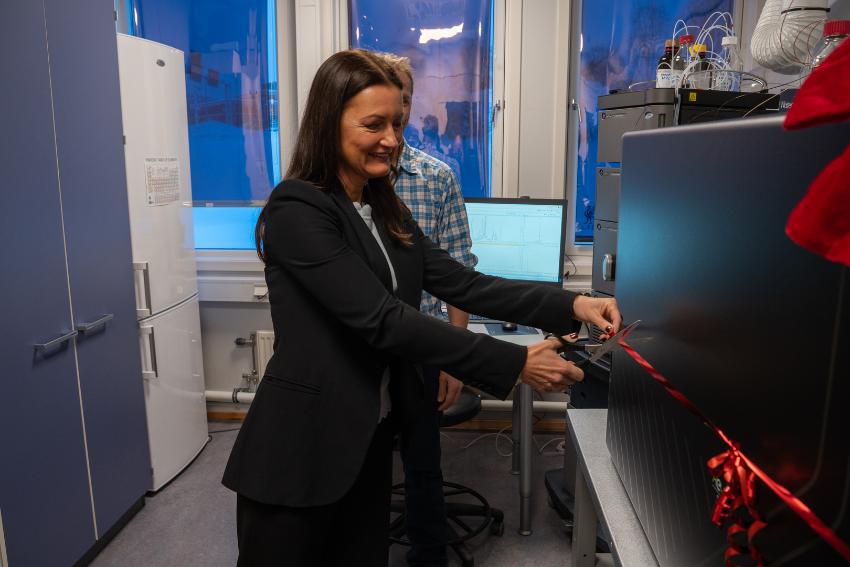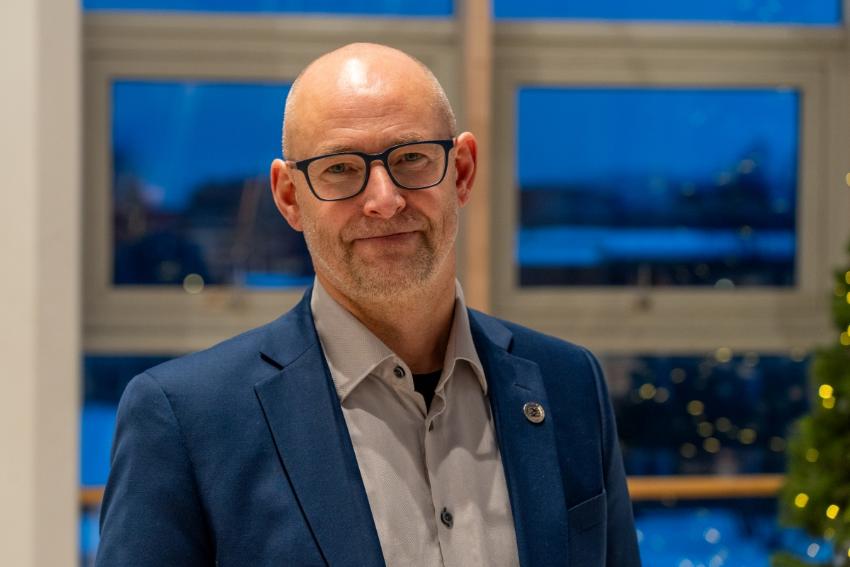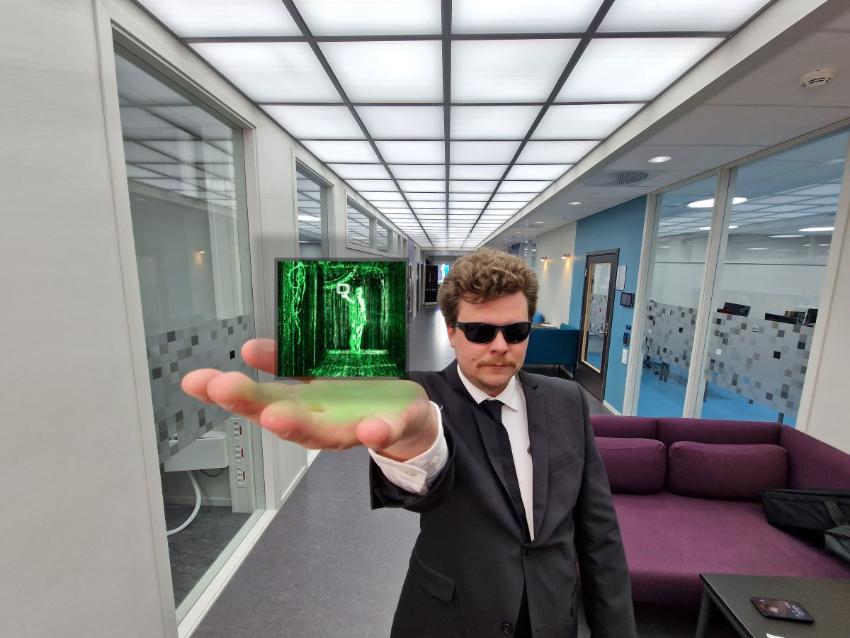PhD seminar at the Department of Computer Science
On Wednesday November 9th, 2022 the Department of Computer Science held a PhD seminar with around 40 participants. The IFI PhD seminar is organized every semester to give PhD candidates at our department a chance to show their progress, share ideas, receive feedback and get an impression of the diverse research conducted at our department.
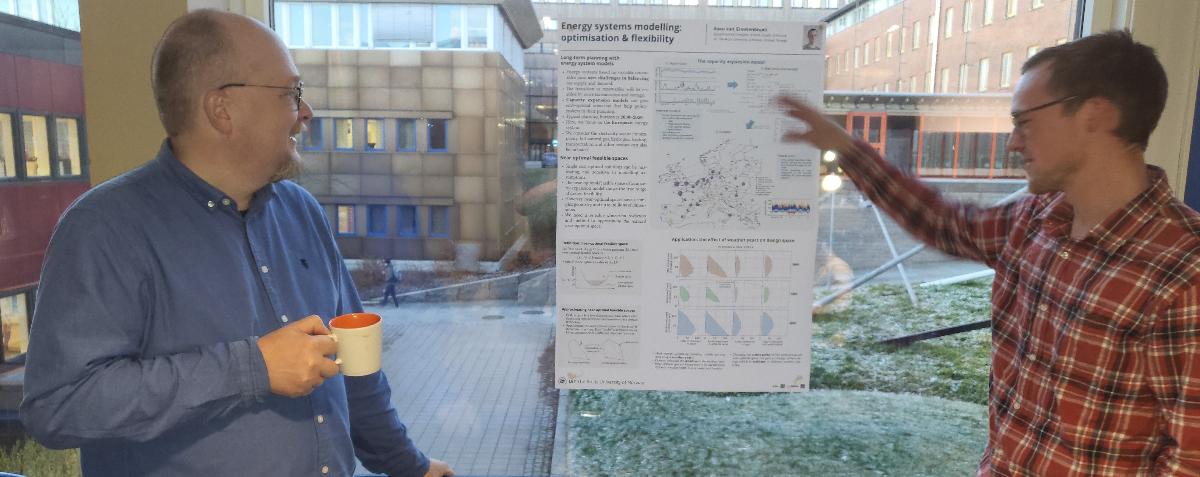
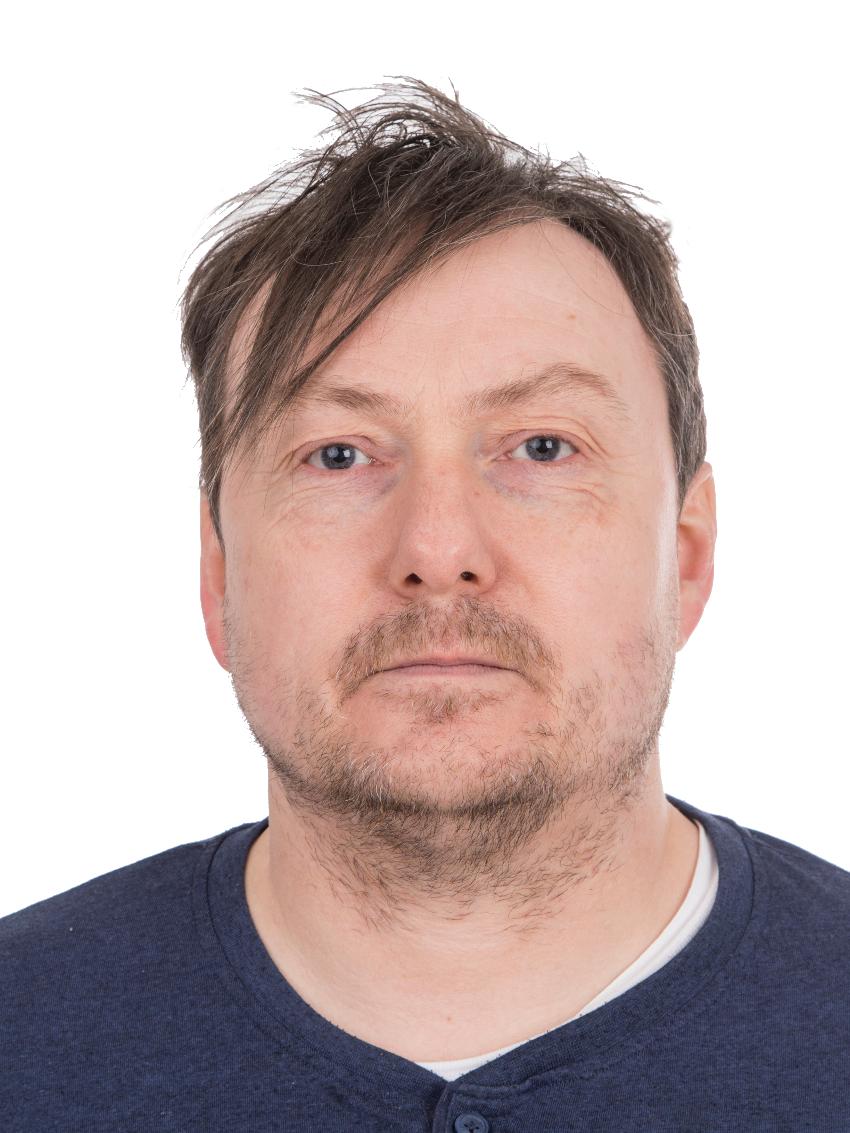
The PhD seminar is split in two parts with a lunch in between:
- Presentations at Nedre Lysthus (09:00 - 12:00)
- Poster session in hallway in front of B203 (Realfagsbygget)
The five PhD students presenting their PhD project in this seminar were:
Rohit Agarwal
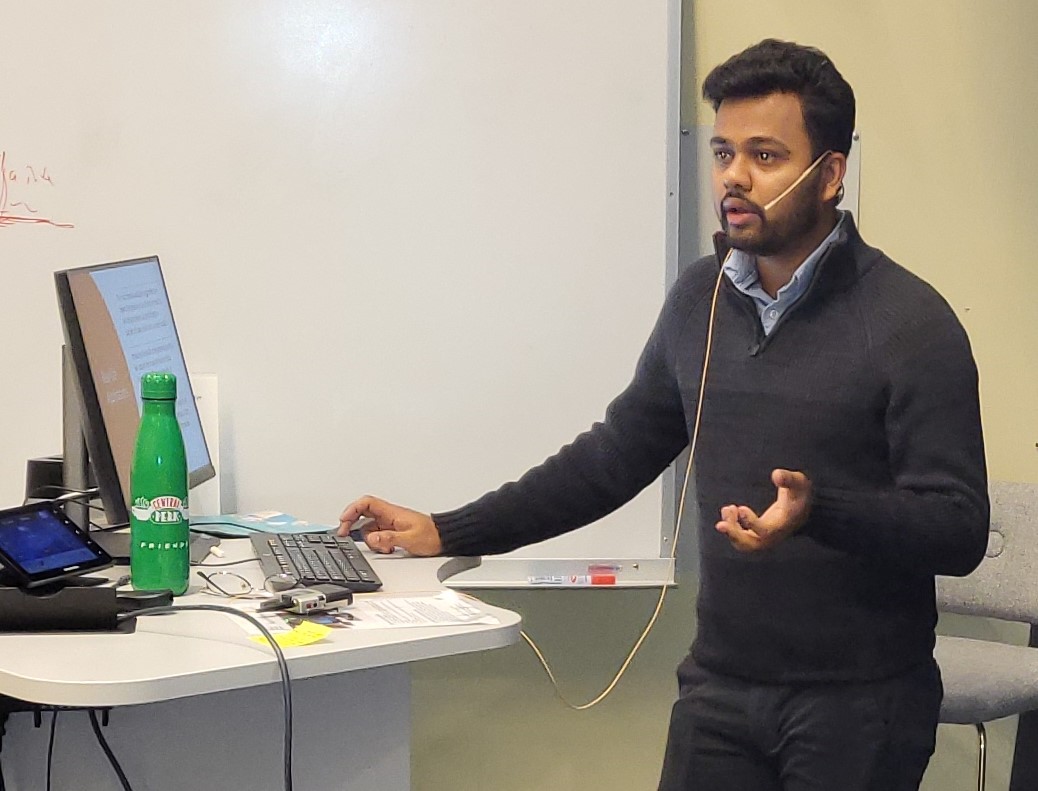
PhD project title: Scalable AI architectures for modeling complex biological systems
Supervisors: Associate professor Dilip K. Prasad, Department of Computer Science (main) and Professor Alexander Horsch, Department of Computer Science, UiT
Abstract:
Real-life applications deal with modeling dynamic systems such as the behavior of biological organelles, dynamics of smart cities, environment around self-driving cars, etc. These applications produce streaming data and are classified as part of the online learning problem. The data received is haphazard and face challenges like missing data, missing features, obsolete features, sudden arrival of an unknown feature and unknown number of total features. The current approaches can handle some challenges like missing data and missing features but cannot address the whole problem. We propose a novel online deep learning-based model called Auxiliary Network (Aux-Net), which is scalable and agile and can handle any number of inputs at each time instance. The Aux-Net model is based on the hedging algorithm and online gradient descent. It employs a model of varying depth in an online setting using single pass learning. Following on the Aux-Net architecture, we also propose another novel concept, Auxiliary-Dropout (Aux-Drop), an adaptive dropout regularizer strategy for online learning that handles the haphazard input features. The Aux-Drop helps in preventing the co-adaptations of features removing the dependency of a feature on the other features. We test our models on various datasets.
Rohit started on the PhD program in June 2021.
Bjørn Aslak Juliussen
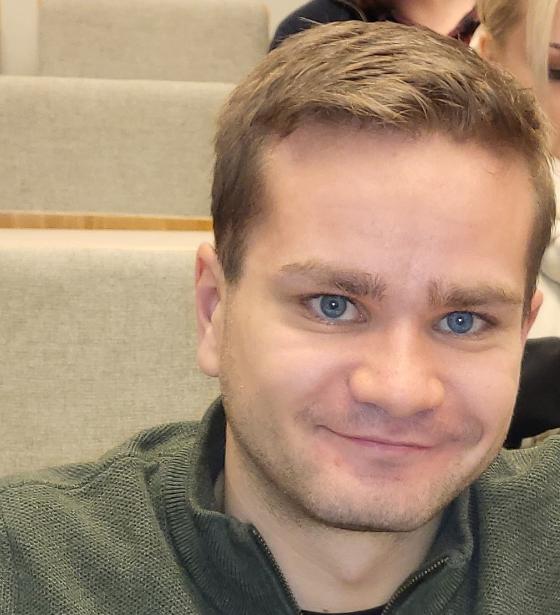
PhD project title: The European Union Approach to Regulating Artificial Intelligence: Necessary Requirements or Unnecessary Barriers for Innovation?
Supervisors: Professor Dag Johansen, Department of Computer Sciece, UiT (main) and Professor Jon Petter Rui, Faculty of Law, UiT and University of Bergen
Abstract:
Currently, the European Union is completing the last details on a new AI act. The discussions in the European parliament are starting January/February 2023 and the act will earliest enter into force in Q1 2025. What are the legal requirements for developing and placing AI systems on the market in the act? How will the act affect the development, the design, and the computer science research on AI systems? Is the act a necessary requirement for safeguarding the inherent risks in AI systems, or is it an unnecessary burden that will hinder innovation? The presentation will discuss these questions from an interdisciplinary perspective in the interface between computer science and law.
Bjørn Aslak started on the PhD program in September 2021.
Mohsin Khan
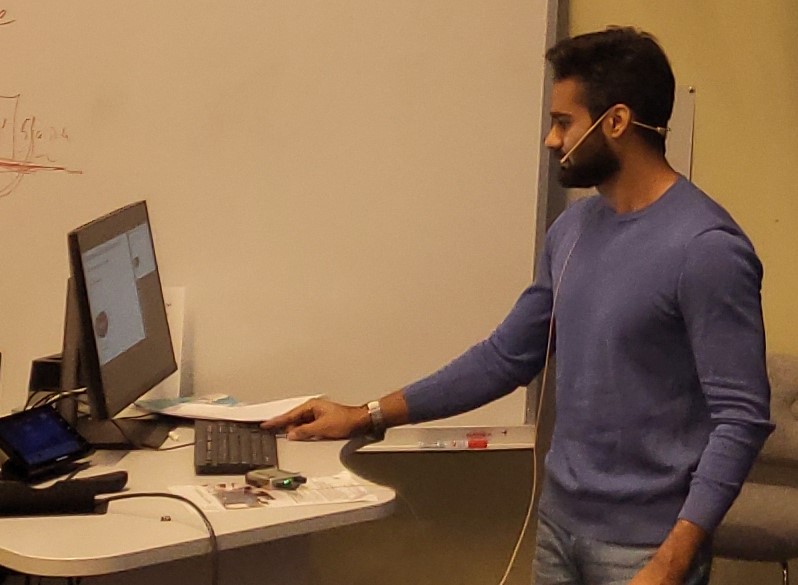
PhD project title: Information Flow Control (IFC) model based on Lightweight Cryptography in IoT devices merged alongside Distributed Cloud
Supervisors: Professor Håvard Dagenborg Johansen, Department of Computer Science, UiT (main), Professor Dag Johansen, Department of Computer Science, UiT and Associate Professor Elisavet Kozyri, Department of Computer Science, UiT
Abstract:
The highly distributed and often decentralized nature of edge-computing environments makes security policies difficult to express and enforce. For edge-deployed Internet of Things (IoT) systems, security management is further complicated by the sheer volume of generated data and its flow through different layers. Processing the structured, unstructured, and semistructured data emanating from the IoT devices at this scale mandates long-running analytical pipelines executing on complex big-data computing infrastructures spanning various cloud and fog environments. With exposure to security threats like insecure data storage and transfer, botnets, vulnerable infrastructures, etc. and complex dynamic regulatory demands, the static and local security mechanisms devised for centralized mainframe systems that we use today such as traditional access control mechanisms and traditional cryptographic algorithms are unsuitable for IoT security due to the resource constraint devices. My Ph.D. project will develop an Information Flow Control system modeled around the Lightweight cryptography for IoT devices centered over the Perception Layer and the Application Layer contemplating integrity, confidentiality, availability, and non-interference. In addition to the IFC, the cryptographic algorithm will consider preventing application/software attacks and communication attacks in IoT devices.
Mohsin started on the PhD program in November 2021.
Abhinanda Ranjit Punnakkal
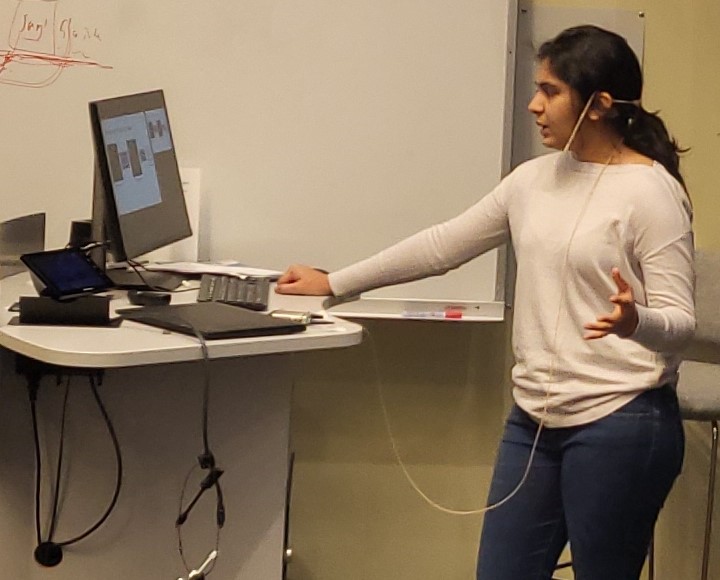
PhD project title: Simulation Supervised Analysis of Mitochondria
Supervisors: Professor Alexander Horsch, Department of Computer Science, UiT (main), Associate Professor Dilip Prasad, Department of Computer Science, UiT and Associate Professor Krishna Agarwal, Department of Physics and Technology, UiT
Abstract:
Mitochondria are small and morphologically diverse structures in the cell. The morphology and dynamics of mitochondria are indicators of cell health. However, quantitative analysis of mitochondria in cell fluorescence microscopy images is challenging. We demonstrate the use of a machine learning-based segmentation and analysis pipeline for the quantification of mitochondria morphology in fluorescence microscopy images of fixed cells. Simulated microscopy images are used to train the segmentation model to eliminate the requirement of ground truth annotations for supervised deep learning. Fluorescence microscopy images of fixed cardiomyoblasts with a stable expression of fluorescent mitochondria markers, treated with CCCP are analyzed using this method.
Abhinanda started on the PhD program in May 2021.
Nikita Shvetsov
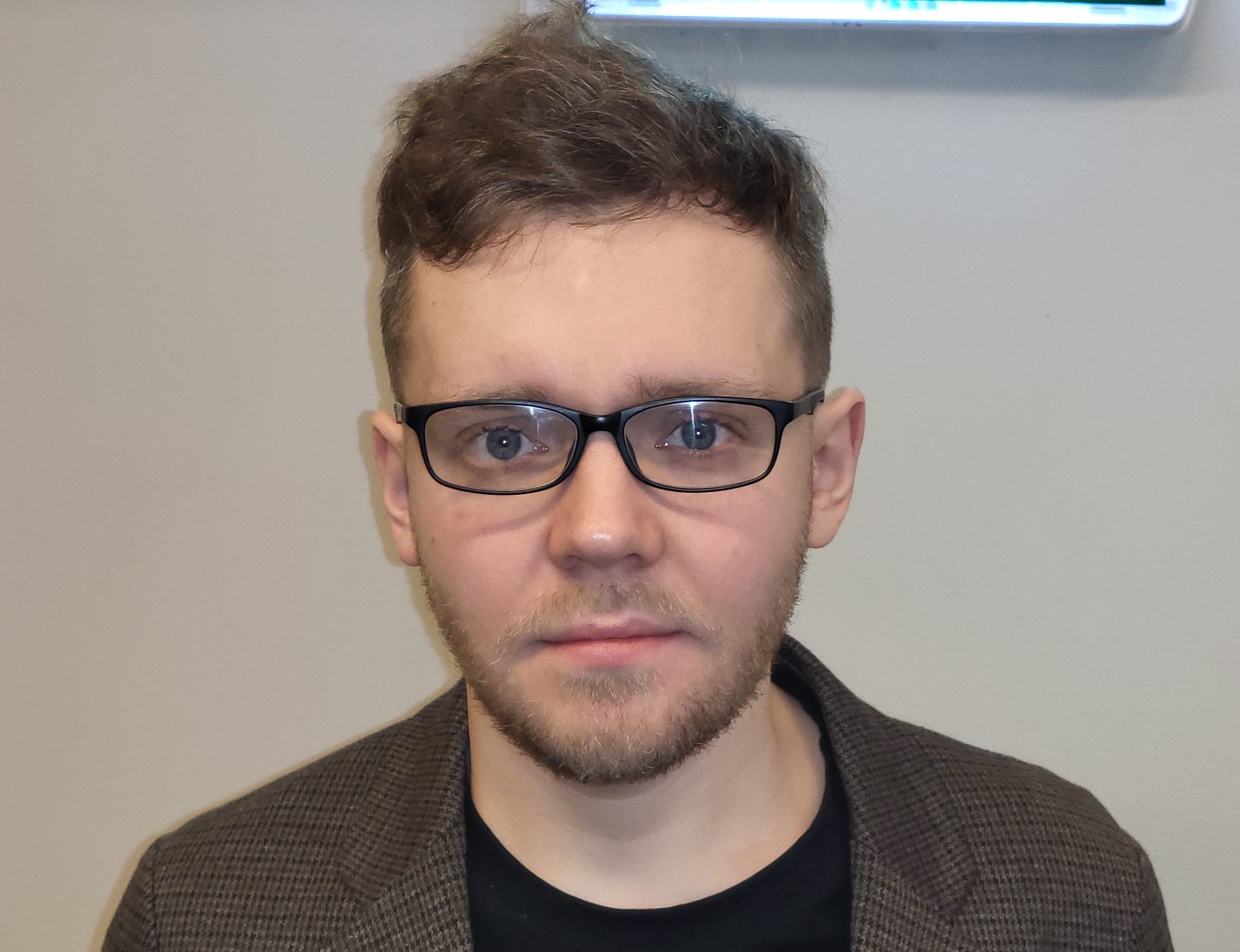
PhD project title: Computational pathology for tumor-infiltrating lymphocytes assessment in whole slide images
Supervisors: Professor Lars Ailo Bongo, Department of Computer Science, UiT (main), Associate Professor Thomas Karsten Kilvær,Department of Clinical Medicine, UiT, Professor Lill-Tove Rasmussen Busund, Department of Medical Biology, UiT, Associate Professor Kajsa Møllersen, Department of Community Medicine, UiT
Abstract:
Tumor-infiltrating lymphocytes (TILs) are among the most important immune cells in the tumor microenvironment and directly influence cancer development. Manual quantification of immune cells is inaccurate and time consuming for pathologists. Our aim is to leverage a computational solution to automatically quantify TILs in whole slide images (WSIs) of standard diagnostic haematoxylin and eosin stained sections (H&E slides) from lung cancer patients. Our approach is to transfer an open-source machine learning method for segmentation and classification of nuclei in H&E slides trained on public data to TIL quantification without manual labelling of our data. Acquired results show that our approach is performing better than existing clinical solutions. One limitation of our method is that processing of WSI requires a significant amount of time, which restricts the use of potential information about TILs. To overcome this limitation, we used another model to perform regions of interest detection in WSI, extracted patches along the tumor border, performed quality control of obtained patches and quantified TILs in resulting patches. We expect that our approach makes WSI analysis for TILs quantification faster and may give pathologists novel insights of TILs clusters in the tumor areas.
Nikita started on the PhD program in February 2021.
Poster session
For the poster session after lunch eigth students presented their Phd project / results from their Phd project. These students were:
- Ayush Somani [Poster, 3,9MB]
- Aril Bernhard Ovesen [Poster, 1,3MB]
- Rafael Adolfo Nozal Cañadas [Poster, 29,3MB]
- Koen van Greevenbroek [Poster, 1,3MB]
- Yigit Can Dündar [Poster, 0,6MB]
- Erlend Johannessen [Poster, 1,3MB]
- Pietro Randine [Poster, 2,1MB]
- Marc Weitz [Poster, 4,4MB]
If you want to take a look at the posters presented you will also find them in the hallway in front of B203 at Realfagsbygget.
Organizers for this seminar have been Øyvind Hanssen, Vi Tran, Erlend Johannessen and Muhammad Sulaiman. Next PhD seminar will be in the spring semester 2023.

Kortnytt fra Institutt for informatikk
Vedlegg / Bilder
-
Fiskeri- og havbruksvitenskap - bachelor
Varighet: 3 År -
Fiskeri- og havbruksvitenskap - master
Varighet: 2 År -
Akvamedisin - master
Varighet: 5 År -
Bioteknologi - bachelor
Varighet: 3 År -
Arkeologi - master
Varighet: 2 År -
Musikkteknologi
Varighet: 1 År -
Computer Science - master
Varighet: 2 År -
Geosciences - master
Varighet: 2 År -
Biology - master
Varighet: 2 År -
Technology and Safety - master
Varighet: 2 År -
Physics - master
Varighet: 2 År -
Mathematical Sciences - master
Varighet: 2 År -
Biomedicine - master
Varighet: 2 År -
Computational chemistry - master
Varighet: 2 År -
Biologi - bachelor
Varighet: 3 År -
Medisin profesjonsstudium
Varighet: 6 År -
Nordisk - årsstudium
Varighet: 1 År -
Luftfartsfag - bachelor
Varighet: 3 År -
Arkeologi - bachelor
Varighet: 3 År -
Informatikk, datamaskinsystemer - bachelor
Varighet: 3 År -
Informatikk, sivilingeniør - master
Varighet: 5 År -
Geovitenskap- bachelor
Varighet: 3 År -
Biomedisin - bachelor
Varighet: 3 År -
Kjemi - bachelor
Varighet: 3 År -
Samfunnssikkerhet - bachelor
Varighet: 3 År -
Matematikk - årsstudium
Varighet: 1 År -
Ergoterapi - bachelor
Varighet: 3 År -
Fysioterapi - bachelor
Varighet: 3 År -
Radiografi - bachelor
Varighet: 3 År -
Automasjon, ingeniør - bachelor (ordinær, y-vei)
Varighet: 3 År -
Samfunnssikkerhet - master
Varighet: 2 År -
Farmasi - bachelor
Varighet: 3 År -
Farmasi - master
Varighet: 2 År -
Romfysikk, sivilingeniør - master
Varighet: 5 År -
Klima og miljøovervåkning, sivilingeniør - master
Varighet: 5 År -
Bærekraftig teknologi, ingeniør - bachelor
Varighet: 3 År -
Forkurs for ingeniør- og sivilingeniørutdanning
Varighet: 1 År -
Odontologi - master
Varighet: 5 År -
Barnehagelærer - bachelor
Varighet: 3 År -
Anvendt fysikk og matematikk, sivilingeniør - master
Varighet: 5 År -
Organisasjon og ledelse for offentlig sektor - erfaringsbasert master
Varighet: 3 År -
Praktisk-pedagogisk utdanning for trinn 8-13 - årsstudium (deltid)
Varighet: 2 År -
Internasjonal beredskap - bachelor
Varighet: 3 År -
Datateknikk, ingeniør - bachelor (y-vei)
Varighet: 3 År -
Droneteknologi, ingeniør - bachelor
Varighet: 3 År -
Bygg, ingeniør - bachelor
Varighet: 3 År -
Bygg, ingeniør - bachelor
Varighet: 3 År -
Bygg, ingeniør - bachelor (y-vei)
Varighet: 3 År -
Datateknikk, ingeniør - bachelor
Varighet: 3 År -
Datateknikk, ingeniør - bachelor
Varighet: 3 År
